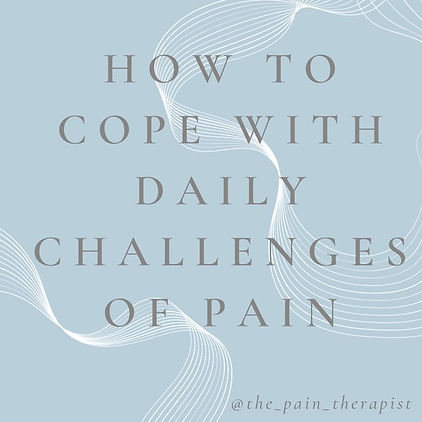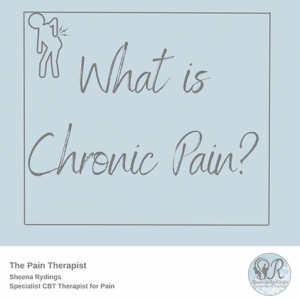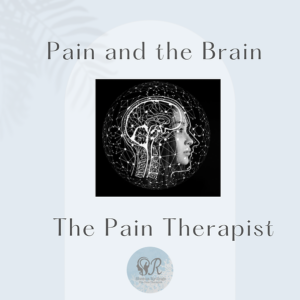Living with chronic pain can feel like navigating a maze with no clear exit. Each day presents unique challenges that can test your mental and physical resilience. However, with the right strategies and mindset, it’s possible to maintain a good quality of life despite the persistent discomfort.
As a CBT therapist since 2012, specialising in chronic pain since 2014, I’ve witnessed firsthand the transformative power of cognitive and behavioural techniques. Here are some insights to guide you:
1. Understand Your Pain:
Knowledge is power. Educate yourself about your condition, the more you know about it the better you can manage it. By understanding the nature of your pain, its triggers, and patterns, you can gain a sense of control. Consult with healthcare professionals, attend workshops, or join support groups to learn more. I have a Substack community where you can be part of a growing community, you will have access to full archive of posts, of you are a paid subscriber you will have access to live Q&A session and exclusive downloadable resources to help you manage your pain. Click here to find out more https://sheenarydings.substack.com?utm_source=navbar&utm_medium=web&r=2ce7wg
2. Adopt a Balanced mindset:
While it’s natural to feel frustrated or despondent, dwelling on negative thoughts can exacerbate your pain. Challenge pessimistic beliefs with rational thinking. Instead of saying, “I can’t do this anymore,” reframe it to, “This is challenging, but I’ve overcome difficulties before, and I can find ways to manage.”
3. Set Realistic Goals:
Break down tasks into manageable chunks. Establish daily or weekly goals that align with your capabilities. Celebrate small victories, as they contribute significantly to your overall well-being and sense of achievement.
4. Practice Relaxation Techniques:
Incorporate relaxation methods such as deep breathing exercises, progressive muscle relaxation, or meditation into your daily routine. These techniques can help reduce stress, alleviate muscle tension, and promote a sense of calmness.
5. Maintain a Balanced Lifestyle:
Aim for a balanced diet, regular exercise (as permitted by your condition), adequate sleep, and social engagement. Engaging in activities you enjoy and maintaining social connections can uplift your spirits and distract from pain.
6. Explore and Use alternative methods of pain management:
Explore various pain management techniques tailored to your needs. This might include physical therapy, acupuncture, heat/cold therapy, or medications prescribed by your doctor. Openly communicate with your healthcare team about your pain levels and treatment preferences.
7. Build a Support Network:
Surround yourself with understanding and supportive individuals. Whether it’s family, friends, or fellow chronic pain sufferers, having a supportive network can provide emotional validation, practical assistance, and encouragement during challenging times.
8. Engage in Cognitive Behavioral Therapy (CBT):
CBT techniques can be particularly beneficial in changing negative thought patterns and behaviors associated with chronic pain. Work with a qualified therapist to develop coping mechanisms, challenge distorted beliefs, and enhance problem-solving skills. Please get in contact if you want to explore how CBT could be helpful for you.
9. Embrace Acceptance:
While it’s essential to pursue treatment and seek relief, acceptance of your condition is equally crucial. Acceptance doesn’t mean resignation but acknowledging your reality and adapting accordingly. Focus on what you can control rather than fixating on uncontrollable aspects.
10. Seek Professional Help:
Don’t hesitate to seek professional help when needed. This could be via the NHS either talking therapies, Chronic pain services or physiotherapy. Or private health professionals such as CBT therapists or Physiotherapists. Chronic pain can take a toll on your mental health, leading to anxiety, depression, or other psychological challenges.
In conclusion, living with chronic pain presents multifaceted challenges that require a holistic approach to management. By incorporating cognitive, behavioral, and lifestyle strategies, you can navigate daily challenges more effectively and maintain a fulfilling quality of life. Remember, resilience isn’t about avoiding difficulties but adapting and thriving despite them.



